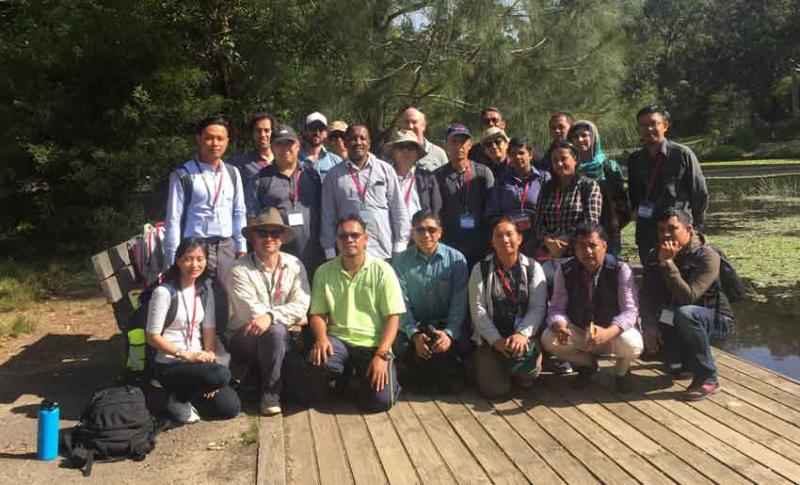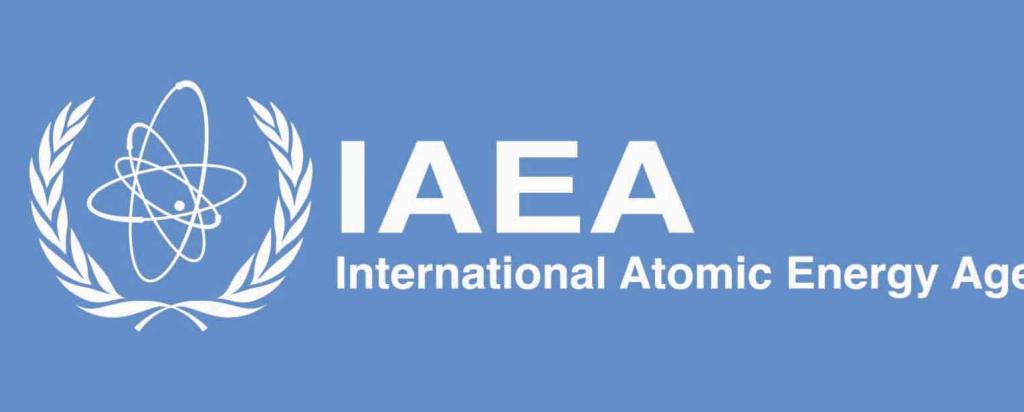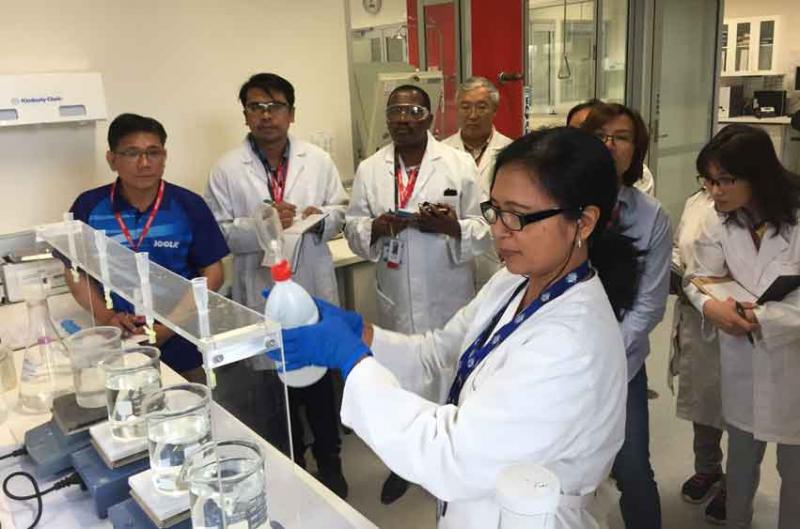

Published on the 21st November 2018 by ANSTO Staff
In an event hosted by Macquarie University and ANSTO, representatives from International Atomic Energy Agency(IAEA) member states in the Asia-Pacific region travelled to ANSTO to attend a technical training course on the advanced application of fallout radionuclides and complementary techniques for investigations of soil and water quality.
The participants were twenty scientists from Bangladesh, Cambodia, China, India, Indonesia, Laos, Malaysia, Mongolia, Nepal, Pakistan, Philippines, Sri Lanka, Thailand and Viet Nam, who will be undertaking soil and water research in their respective countries under the auspices of the IAEA Regional Cooperative Agreement project RAS5084.
Numerous experts from Australia, New Zealand and the IAEA, including course director Dr Tim Ralph, from Macquarie University, and Dr Craig Woodward from ANSTO, shared their knowledge and skills over a five day program that encompassed theory/applications, practical sessions and analysis/interpretation of data.
“Our role is to train participants at the regional level of Asia and the Pacific so that they are able to apply the same nuclear and isotopic techniques appropriately to their different projects,” said Ralph, who developed the regional project with the IAEA and has been lead country coordinator since it began in January 2018.
The comprehensive training course, which included lab and field work, covered assessments of soil and sediment, with a focus on techniques that measure fallout radionuclides and can be used to trace sediment in catchments.
“Radionuclides, which are deposited in the landscape through natural fallout and following nuclear testing, let you identify the origin, transport and fate of soil and sediments in agricultural catchments and agroecosystems,” said Ralph.
Participants also learned about mathematical mixing models that contribute to the identification of soil and sediment sources, led by Dr Arman Haddadchi from the National Institute of Water and Atmospheric Research (NIWA) in New Zealand, an expert in sediment fingerprinting.
The program included a field day at the Royal National Park with the assistance of NSW National Parks and Wildlife Service, and the NSW Office of Environment and Heritage (OEH).
The field trip was about selecting a sampling site, sampling strategies and ‘hands-on techniques’ with the assistance of Ralph, Woodward, two Macquarie University research students, and Dr Yoshi Kobayashi from NSW OEH.
Ralph said that Macquarie University, ANSTO and OEH were keen to explore opportunities for collaboration on research associated with the regional project activities and this would be undertaken over the four year program.
“Part of the course also included visits to a number of ANSTO laboratories for everything from low-level radioactivity measurements to accelerator mass spectrometry for carbon-14 and plutonium,” said Ralph.
ANSTO scientists who acted as lecturers/trainers included Atun Zawadzki, Dr Karina Meredith, David Child, Dr Quan Hua, Patricia Gadd, Jay Chellapa, and Dr Geraldine Jacobsen.
The arrangements were also made with the assistance of the International Liaison team and Kelly Cubbin at ANSTO.
Senior Manager, Government and International Affairs, Steven McIntosh said assisting with regional training was part of ANSTO’s mandate in sharing nuclear expertise as part of ANSTO’s support for Australia’s national interests. ANSTO was fully committed to working with international partners to address IAEA priorities such as environmental sustainability.
The first training program for RAS5084 was held in Viet Nam in August 2018, and a subsequent training course focussing on the use of stable isotope techniques for soil and water investigations will be held in China in 2019.
